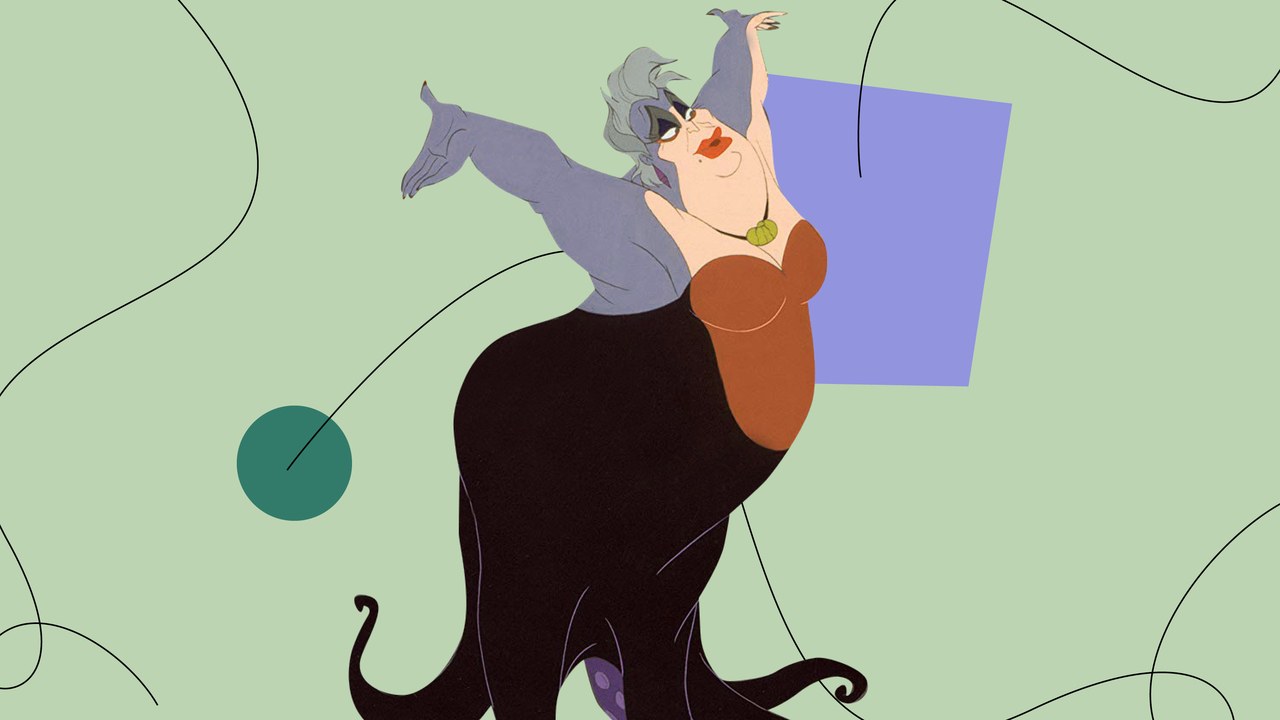The Little Mermaid's Ursula Is My 'Revenge Body' Icon

It took a few more years of harsh fat-girl realities before I could fully appreciate Ursula. Over time, as my body became the first weapon utilized by people looking to hurt me, Ursula became this villain that scared me in a new way. (Yes, there were other plus-size villainesses to come before Ursula [s/o to the Queen of Hearts! Off with their heads, girl.], but no one made me uncomfortable in the way Ursula did.) I wasn’t scared that she would steal my voice or my charming prince. I found something new to be scared of. And this time it was the way Ursula embraced her body with her fatty back rolls and her revealing dress. That wasn’t wrong. She wasn’t supposed to hold her head up high, and she definitely wasn’t supposed to be delighted in her body. Right? Have you ever seen someone walking with purpose when you feel like you’re fumbling, just trying to get your footing? That was how Ursula made me feel for a season of my life. Either the bitch had all the answers, or she was really good at faking it.
Of course, Ursula is fictional, so I found myself digging a little deeper into the inspiration behind Ursula so that maybe I could understand why she made me feel simultaneously intrigued and uneasy. A quick Internet search showed that the inspiration behind the sea witch with the mostest is the John Waters muse and icon, Divine. In case you don’t know who Divine is, she was a drag queen from Baltimore who played Tracy Turnblad’s mother in the original Hairspray. She was crude and gross and funny and fat and even a little bit sexy—even if you didn’t want to admit it.
I could write pages about power dynamics and privilege between both fat women and gay men, but for the sake of this essay, I’ll just say that fat women and gay men have often found common ground and bonded over being rule breakers. Fat women don’t play by society’s rule that a woman’s body exists solely for male gratification, and gay men subvert the gender roles that men have traditionally relied on for the purpose of keeping women and people of color out of power. Like I said, there’s so much more nuance to consider, but the point is: OF COURSE URSULA WAS INSPIRED BY A DRAG QUEEN. Of course she challenged me and made me uncomfortable. That’s what she was designed to do.
We never have the good fortune of seeing Ursula’s backstory play out on screen, but something about her tells you she’s a woman scorned. And yet, rather than turning into the expected (a dowdy shrew), she became a ravishing fat sea witch. As someone who loves both stories and fat people, I constantly find myself homing in on how fat people are portrayed. There are a lot of fat tropes we see over and over again, and one that Ursula so artfully subverts is the revenge body.
The revenge body trope asserts that for a fat woman to avenge herself and to prove to her bullies once and for all that they were wrong about her, she must lose weight. Only then will her vengeance be fully realized. Essentially, the fat woman must become something she is not to prove that she was worthy all along. Not Ursula though. With her tentacles, back rolls, and red lips, Ursula isn’t waiting for a revenge body. She already has one. For Ursula, her fat body is her revenge body, just as it should be. What if we all stopped waiting to be someone else and instead just embraced the people we are in the bodies we have? We’d be unstoppable.





